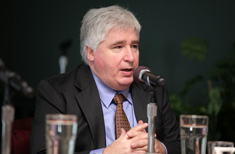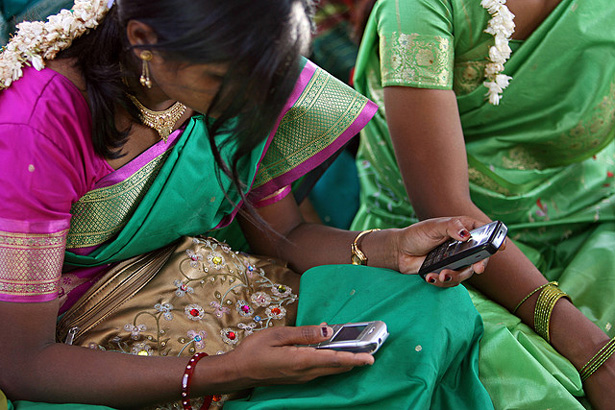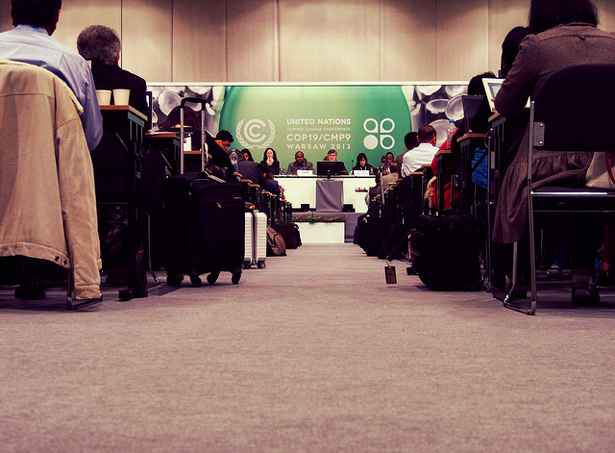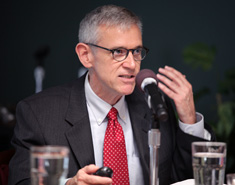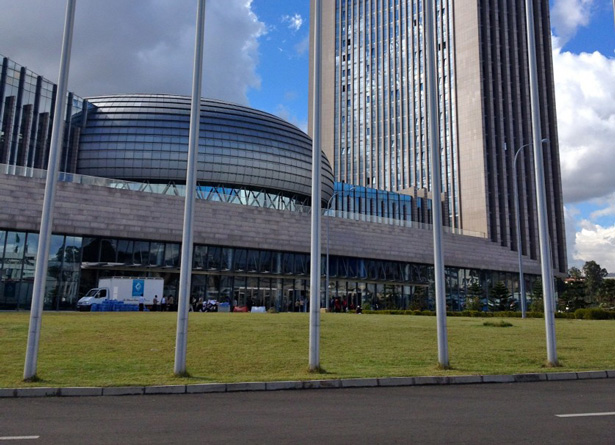-
Beyond the Horizon: Understanding the Future for Better Development Today
›December 16, 2013 // By Kathleen Mogelgaard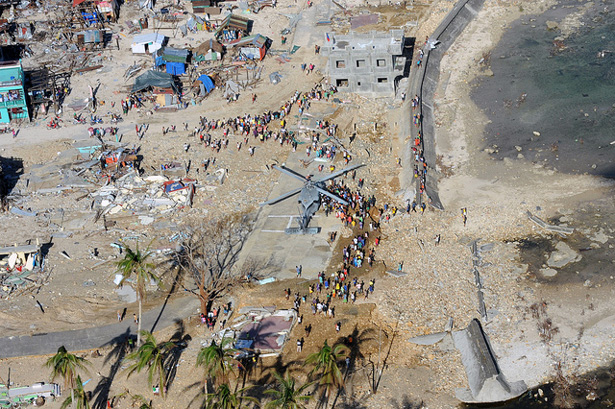
When Super Typhoon Haiyan ripped through the Philippines last month, the incredible damage visited on the people, infrastructure, and land was shaped by trends that have been in motion for decades. The country’s population has been growing rapidly, with high concentrations of people living in cities and along the coast; economic growth had been steady, but weak governance and corruption may have exacerbated vulnerability; and the gradual loss of coastal forests and mangroves left many communities exposed to the full brunt of the typhoon’s storm surge. On a positive note, wireless technology and crowd-sourced data helped in disaster response.
-
David Canning: Africa’s High Fertility Can Change Quickly, Help Harness the Demographic Dividend
›
Compared to East Asia and Latin America, the “demographic transition” in Africa has been slower to date, prolonging periods of rapid growth and creating very youthful populations. But, explains David Canning in this week’s podcast, “the high level of fertility in Africa doesn’t seem to be something that is set in stone.”
-
Torrent of Water and Questions Pour From India’s Himalayas
›
We made the crossing at night from Chamoli, reaching Okund, a Himalayan foothill town after dark. The innkeeper, anxious for guests in a travel economy that came to a standstill in mid-June, cooked dal and nan bread for dinner and then showed us to a room that was unlit and unheated.
-
Critical Mass? How the Mobile Revolution Could Help End Gender-Based Violence
›
The past three years – and more pointedly the past 12 months – have laid witness to monumental, if not heartbreaking, incidents of gender-based violence. The gang rape of a 23-year-old woman in New Delhi last December; the gang rape of a 16-year-old girl left for dead in a pit latrine in Western Kenya last June; the mass sexual assault of women in Tahrir Square during the 2011 revolution in Egypt and since; all were high profile atrocities that ignited outrage around the world.
-
Vik Mohan: Madagascar’s Cyclone Haruna Showed Benefits of Integrated Development
›December 10, 2013 // By Jacob GlassWhen Cyclone Haruna swept across Madagascar last February, Blue Ventures, a marine conservation and community health organization, found themselves in a surprising new role. “We went from development, to aid, and back to development, in an integrated way we never expected,” said Medical Director Vik Mohan in an interview at the Wilson Center.
-
Gender Gaining Ground at Climate Change Negotiations
›
Last month, more than 10,000 negotiators from 189 countries attended the latest UN climate change conference, known as the 19th Conference of the Parties, or COP-19, this year held in Warsaw. To many, COP-19 fell frustratingly short of its already low expectations: there were no significant new agreements and 132 developing countries along with many major non-government groups staged a walkout in protest. However, it was notable for several signs of continued progress in bringing women’s voices to the negotiating table.
-
Jay Gribble: For Demographic Dividend, Invest in Health, Education, and Governance
›
Developing countries with youthful populations may have the opportunity to take advantage of a phenomenon called the “demographic dividend,” when a decline from high to low fertility rates leads to slower population growth and a large working age population. But “age structure alone isn’t going to make it happen,” says Jay Gribble of Abt Associates in this week’s podcast.
-
Laura Robson and Caroline Savitzky, Blue Ventures
PHE Is Alive and Kicking: Inspiration and Endorsement From Addis Ababa
›December 4, 2013 // By Wilson Center Staff
The original version of this article, by Laura Robson and Caroline Savitzky, appeared on Blue Ventures’ Beyond Conservation blog.
The excitement was palpable as we gathered with almost 200 of the world’s finest population-health-environment (PHE) practitioners, researchers, and advocates in Addis Ababa for the International PHE Conference earlier last month! With all of us working on integrated projects encompassing family planning, community health, sustainable livelihoods, and environmental initiatives, there were many ideas and progress updates to be shared.
 A Publication of the Stimson Center.
A Publication of the Stimson Center.

